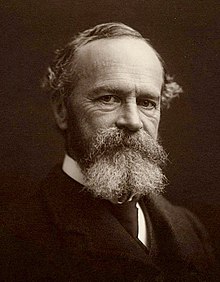
What follows may appear to have been plagiarized from the wikipedia article on The Problem of Universals.
It isn't though: I was the original author of much of that article, and the material that follows still survives there in roughly the form I originally gave it years ago. So I feel free to steal it back from myself.
---------------
William James learned pragmatism, the way of understanding an idea by its practical effects, from his friend Peirce, but he gave it new significance. (Which was not to Peirce's taste - he came to complain that James had "kidnapped" the term and eventually to call himself a "pragmaticist" instead.) Although James certainly agreed with Peirce and against Berkeley that general ideas exist as a psychological fact, he was a nominalist in his ontology:
There are at least three ways in which a realist might try to answer James' challenge of explaining the reason why universal conceptions are more lofty than those of particulars: the moral/political answer, the mathematical/scientific answer, and the anti-paradoxical answer. Each has contemporary or near-contemporary advocates.
The moral or political response is given by the conservative philosopher Richard M. Weaver in Ideas Have Consequences, where he describes how the acceptance of "the fateful doctrine of nominalism" was "the crucial event in the history of Western culture; from this flowed those acts which issue now in modern decadence".
Roger Penrose contends that the foundations of mathematics can't be understood absent the Platonic view that "mathematical truth is absolute, external and eternal, and not based on man-made criteria ... mathematical objects have a timeless existence of their own.
Nino Cocchiarella (1975), professor emeritus of philosophy at Indiana University, has maintained that conceptual realism is the best response to certain logical paradoxes to which nominalism leads. Cocchiarella, then, has adopted Platonism for anti-Platonic reasons. Plato, as seen in the dialogue Parmenides, was willing to accept a certain amount of paradox with his forms. Cocchiarella adopts the forms to avoid paradox.
Comments
Post a Comment